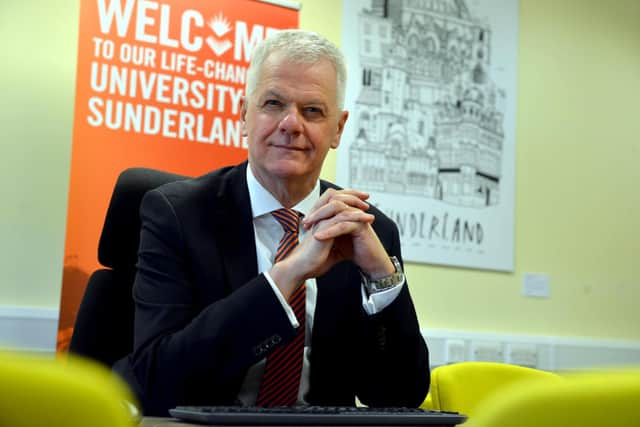Sunderland University sees 60 per cent fall in EU students as Vice-Chancellor speaks about the impact of Brexit
and live on Freeview channel 276
For the academic year 2020/21 the university welcomed 364 EU students but this year, following the end of the Brexit transition period, this has fallen to 145.
The country to experience the biggest decrease is Greece which has seen the number of students enrolled on courses fall from 129 in 2020/21 to just 27 this year.
Advertisement
Hide AdAdvertisement
Hide AdWhile the UK officially left the EU on January 31 2020, during the transition period, which ended on January 1 2021, EU students were still entitled to the same eligibility criteria for course fees and support as UK students.
Speaking on the issue Sir David Bell said: “When we were in the European Union, EU students could access the same tuition fees and loans as UK students. All this is gone and we’ve seen a decline in our EU student numbers.
"We’ve particularly lost people coming to our London campus.”
Leaving the EU has also seen an end to access to the Erasmus programme – an EU funded exchange programme which provides support to enable students to spend part of their courses studying and living abroad.


Advertisement
Hide AdAdvertisement
Hide AdWhile the last two years has seen very few students take part in any form of exchange, this has been “mainly down to Covid” and as restrictions start to ease, Sir David is hopeful students can once again see their studies enriched by the experience of studying abroad.
He said: “We are out of Erasmus now but the Government has replaced it with the Turing Scheme, which is virtually a like for like replacement. Hopefully we will once again start to see students going out on exchange programmes during the next calendar year.”
Despite seeing a marked decline in EU student numbers, Sir David stressed this has been offset by increases in international numbers from elsewhere, particularly African nations.
He added: “Despite leaving the EU, it’s incredibly important the Government maintains a welcoming and reasonably straight forward route into the UK. International students make a massive financial contribution to the city’s economy.
Advertisement
Hide AdAdvertisement
Hide Ad"The worst signal we can give is that Britain is closed for business.”
A message from the editor:
Support your Echo and become a subscriber today.
Enjoy unlimited access to all of our news and sport, see fewer ads, experience faster load times, test your brain with daily puzzles and get access to exclusive newsletters.
Comment Guidelines
National World encourages reader discussion on our stories. User feedback, insights and back-and-forth exchanges add a rich layer of context to reporting. Please review our Community Guidelines before commenting.
